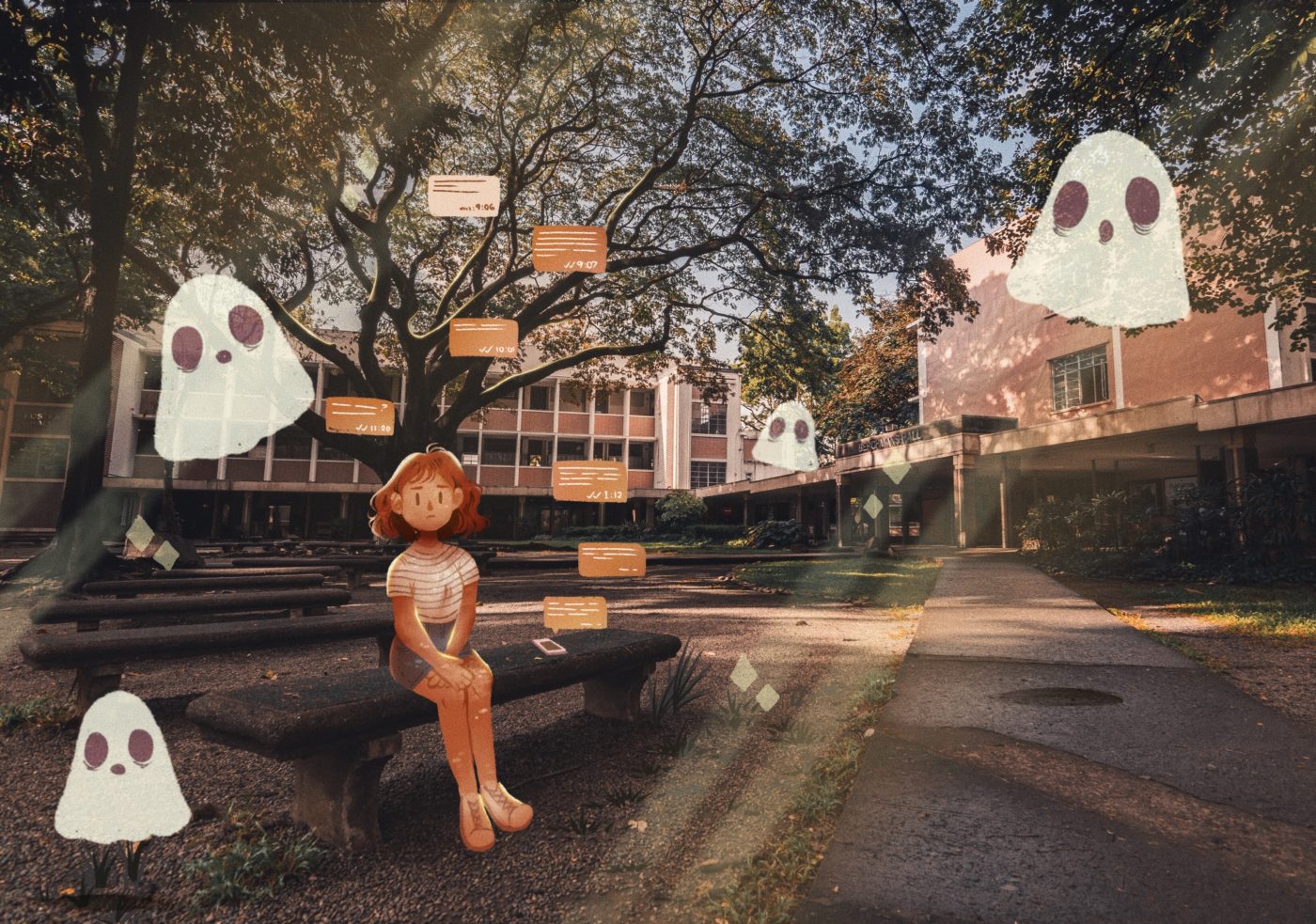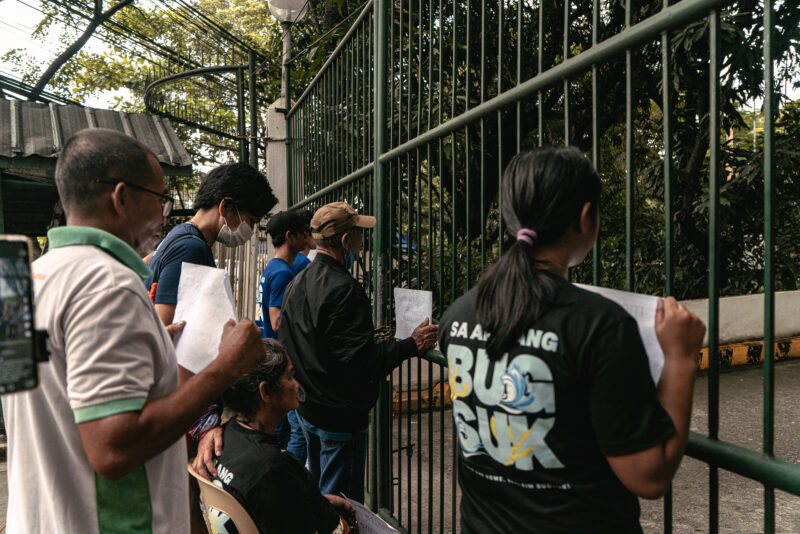PICTURE THIS: In your attempts to find romance, luck strikes you, and you meet someone you’re immediately attracted to. After a whirlwind of late night conversations, flirty banter, and exhilarating dates, that same person suddenly disappears off the face of the earth. What once was an influx of kilig in your life is now replaced with unanswered questions, self-doubt, and utter confusion.
For many singles trying out the game of love nowadays, this situation is all too familiar. If there’s anything that haunts those looking for relationships, it’s the fear of having someone abruptly end all communication without a single explanation—or, simply put, the phenomena of “ghosting.”
Ghosts of relationships past
Although the term “ghosting” was only recognized in dictionaries in 2015, the new buzzword has made waves in modern dating culture. Particularly, ghosting has become more popular online with the advent of terms such as “seen-zoned” or “being left on delivered.” However, even before its recognition, the practice had already manifested itself in various ways such as never calling again or failing to show up for dates. Though part of the reason why technology was invented was to mitigate these concerns, such instances still plague the dating scene today.
Ghosting has proven to be more prevalent in romantic relationships for various reasons. When the spark is gone, it can become easy to cut communication from even a long-term companion. Nina* relays this, as she had difficulty finding time for her significant other due to organization work and academics: “[I] started to lose interest. I never made the effort to reply, and so a few days of ghosting turned to a week, then to a month.”
Another reason for ghosting is negative interactions brought about by toxic behaviors from one or both sides of a relationship. Examples of this kind of toxicity include gaslighting—the act of emotionally and mentally manipulating someone to induce feelings of self-doubt and emotional duress—as well as passive-aggressive dispositions during arguments. When these occur, partners would rather cut off communication than address the problem. Romeo Melendrez (2 BSM AMF) states that he had ghosted when he lost the will to maintain a relationship laden with conflict. “After na-cut [yung relationship], malungkot noon, pero na-realize ko na toxic yung pinanggalingan ko (After the relationship ended I was sad, but I eventually realized that it was toxic to begin with),” he says.
There’s also the ghoster’s refusal to communicate; some have admitted that they would rather stay silent than address a difficult situation. Sophomore Jim* shares that a lack of courage in confronting an issue led him to ghosting a female friend. In his case, he had been “feeling uncomfortable” with her constant attempts to communicate her emotions. “I just wanted to avoid the topic,” he says.
Loyola Schools Guidance Counselor Reginald Centeno says that the avoidant nature of ghosters exhibits somewhat “immature” communication skills and speaks of their unpreparedness to engage in relationships. “If you pursue them, or try to communicate with them [more], it will just be detrimental for you,” Centeno says, referring to people who are showing signs of ghosting.
One would think that ghosters are inclined to defend their actions, but even they agree that it’s best to be upfront with communicating how one feels. “You’re involving another person who has feelings. I think it’s unfair for [them] to be left in the dark,” says Nina, a self-confessed ghoster.
For those who are considering ghosting, Jim’s word of advice is to think of a way to deal with an issue in a manner that still shows care for the other’s emotions. “[If] it’s a person who recently opened up to you and you just cut her off, [they’ll] be shell-shocked by the experience,” he warns.
A ghost that haunts
Accounts from ghosters prove that ghosting is a complicated affair for those who do it. Meanwhile, those who have been ghosted sometimes experience ill long-term effects, such as losing one’s sense of identity after a wave of paranoia and anxiety. “If you don’t feel good about yourself, you begin to ask questions: ‘Is it me? Is there something wrong with me?’” Centeno says.
This carries over even to social interactions—such was the case with Josh* after he was ghosted by his significant other. He laments that the ghosting incident left him much more introverted in situations where he was usually confident.
“I compromised the quality of my friendships by not paying close attention to the other friends that I made,” Josh admits.
On the flip side, there are others whose experiences of ghosting have strengthened their person. Sandy,* for instance, got through the pain by acknowledging that she deserves better. “If you [work on yourself], you’ll eventually grow to love yourself and if you know how to [do so], you’ll realize your worth and what you deserve,” she assures.
But Sandy emphasizes that bettering the self should be grounded in self-growth and not used as a stepping stone to find romance again.
Josh’s moving on process shares a similar tune. “[I moved on] through finding new hobbies such as watching anime, talking to my real friends, and self-reflection,” he shares. Though he admits the experience was terrible, it paved the way for greater maturity. “[I evaluated] myself on what I should work on and [continue] to do well; and I think I grew up a million times.”
When ghosting gets too difficult to cope with on your own, assistance is accessible both within and beyond the Loyola Schools. “[You] can go for professional help [and] see a guidance counselor or psychologist,” Centeno says. He says that personal issues triggered by ghosting, such as poor self-esteem, can be managed properly through therapy.
Swipe left, swipe fright
It’s ironic that ghosting is now prevalent in the digital age, where social media is supposed to help foster connections. Department of Communication Professor Serena Vaswani cites Leah LeFebvre’s 2019 research on relationship dissolution, which says that ghosting “feeds on technologically driven advancements.” According to the study, social media and online dating applications provide the ghoster with the option of easy withdrawal. Direct confrontation is no longer a prerequisite for the termination of a relationship—online absence is already more than enough.
Additionally, Department of Communication Professor Christine Cox attributes ghosting to social media’s convenience and easy display of information. “We’re online all the time. We have data plans which allow us to connect 24 hours a day,” she says. “Ghosting [is] especially easier to do because it’s just not responding, and that itself is communication….[These] new media applications [are] very attractive because it gives you more choices [in getting to know someone].”
Furthermore, she stresses the modern complications of communication, underscoring the double-edged nature of media applications. “[Ghosting has] definitely made the environment [of communication] more complicated… It’s ironic because it’s now so easy to get in touch [and] connect with somebody, but it’s also so easy to ghost [and] cut contact with them,” she says.
The communication shifts brought about by social media and dating apps could shape the behaviors, emotional manifestations, and values of future generations. “Ghosting—with its significant emphasis on cutting off all contact and talk—posits an unfinished dissolution routine,” Vaswani says. “This challenges our historically and socially assumed scripts for how these sorts of interactions would typically proceed.”
Cox, on the other hand, highlights how our attitudes in relationships have changed, like opting to ghost instead of going through a formal break-up. According to her, these relatively new concepts are telling of how we adapt to technology and communicate our affections.
Vaswani further stresses that as members of the digital age, we should be more critical of our use of technology when it comes to communication. She adds that we must reflect on the quality of the relationships we make and maintain. “How we talk to the other person matters just as much as what we say to them,” she asserts.
Ghosting has become rampant now that relationships are migrating to the digital sphere. Social media and dating apps may make forming connections easy, but these advancements in technology still prove to be a double-edged sword. It, then, becomes the communicator’s responsibility to wield these tools in a way that will foster truly life-giving relationships and to better realize how words—or lack thereof—can affect the feelings of others.
*Editor’s note: The name of the interviewees have been changed at their request in order to protect their identity and privacy.







